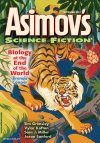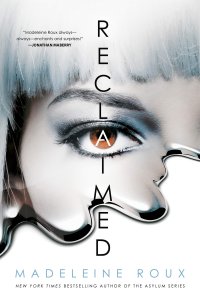Alexandra Pierce Reviews The Year’s Top Hard Science Fiction Stories 7 by Allan Kaster, ed.
 The Year’s Top Hard Science Fiction Stories 7, Allan Kaster, ed. (Infinivox 978-1-98365-326-1, $18.99, 374pp, tp) June 2023. Cover by Maurizio Manzieri.
The Year’s Top Hard Science Fiction Stories 7, Allan Kaster, ed. (Infinivox 978-1-98365-326-1, $18.99, 374pp, tp) June 2023. Cover by Maurizio Manzieri.
Allan Kaster spends no time in his introduction to this seventh volume in the Top Hard Science Fiction series defining “hard science fiction.” Perhaps he has done so in an earlier volume – they’ve come out like clockwork for the last seven years, but to my dismay, this is the first time I’ve come across them. He does note that he likes “stories that push my reader buttons,” and that the 15 stories brought together for this anthology do just that. The stories originally appeared across a fairly small number of venues: three anthologies and five magazines and of the 15 authors, Kaster notes that nine are new to the Top Hard Science Fiction series.
It’s hard to single out favorites in this anthology, which is impressive; even best-ofs don’t usually manage a collection that appeals across its entire range. (Perhaps my taste is just very similar to Kaster’s.) Conversely, and more impressively, it’s also impossible to point to a dud. A range of science fiction subspecies are represented: there are several stories set in our solar system, and some further out in space; a few are set on Earth at varying distances from our own time. There are aliens of one sort or another in several, and time travel is present, too. In terms of plot, there is some diversity, although for me the overwhelming theme was exploration: of places, of people, of self. Both romantic and familial love – the seeking and the consequences – are also significant factors in many of the stories.
Having said that picking favorites is hard, Catherynne M. Valente’s “The Difference Between Love and Time” is a breathtaking opening story that sets very high expectations for the quality of the entire anthology. An exploration of what it might mean to know and love the embodiment of the space/time continuum, its nonlinear structure is entirely appropriate – and stands out in this anthology. Valente’s meditations on love and family are themes that continue across many of the stories. Nina Allan’s “The Lichens” is similarly interested in love across time (both stories come from Jonathan Strahan’s Someone in Time anthology, so that’s not surprising), while Gregory Feeley’s “A Stone’s Throw” brings orbital mechanics into the desperation of young love. Wonderful explorations of the good bits of family are found “The Abacus and the Infinite Vessel” (Vikram Ramakrishnan) and “I Give You the Moon” (Justina Robson). These (and many of the others) all show that writing “hard” science fiction does not negate writing vital characters and passionate relationships.
One of the more surprising themes present was the place of art and artists; it’s not something I tend to associate with “hard” science fiction. Gwyneth Jones’s story “The Ploughshare and the Storm” focuses on a discovery made by two artists in the course of their work; Yoon Ha Lee’s cartographers in “Nonstandard Candles” are arguably artists; and Peter Watt’s architect in “Critical Mass” would certainly regard himself as an artist. Sheila Finch’s “The Wine-Dark Sea” focuses on the discovery of ancient petroglyphs, and a consideration of who the artists had been. There’s fascinating interplays between technology and art in each of these stories. I like that these (and, of course, other) authors show science and technology acting together with art.
Exploration has driven much science fiction in the past, so it’s no surprise that it surfaces in this anthology. Deborah L. Davitt presents the perennial issue of Mars exploration in “Beneath the Surface, a Womb of Ice”, while Lee’s cartographers are exploring and mapping the galactic darkness. Paul McAuley imagines someone whose entire career is about exploring, and the consequences of that, in “Maryon’s Gift”; Sean Monaghan’s “Goldie” focuses on the exploration of a planet and its wildlife. Exploration itself isn’t the point of these stories, though: they all situate the process in the larger human experience of the universe.
A great deal of energy has been expended in trying to define “science fiction,” and likewise what it means to categorise something as “hard science fiction” – to no great profit, as far as I am concerned. Reading the contents page of Top Hard Science Fiction Stories is an interesting experience: I’m sure there are plenty of people who would dispute whether some of the stories included meet their definition. Such a discussion would not be very interesting. It’s one person’s vision of that category (possibly shared by his publisher), allowing him to bring together an exceptional range of stories which don’t have all that much in common – except for their quality.
Alexandra Pierce reads, writes, podcasts, cooks and knits; she’s Australian and a feminist. She was a host of the Hugo Award winning podcast Galactic Suburbia for a decade; her new podcast is all about indie bookshops and is called Paper Defiance. Alex has edited two award-winning non-fiction anthologies, Letters to Tiptree and Luminscent Threads: Connections to Octavia E Butler. She reviews a wide range of books at www.randomalex.net.
This review and more like it in the June 2023 issue of Locus.
 While you are here, please take a moment to support Locus with a one-time or recurring donation. We rely on reader donations to keep the magazine and site going, and would like to keep the site paywall free, but WE NEED YOUR FINANCIAL SUPPORT to continue quality coverage of the science fiction and fantasy field.
While you are here, please take a moment to support Locus with a one-time or recurring donation. We rely on reader donations to keep the magazine and site going, and would like to keep the site paywall free, but WE NEED YOUR FINANCIAL SUPPORT to continue quality coverage of the science fiction and fantasy field.
©Locus Magazine. Copyrighted material may not be republished without permission of LSFF.






